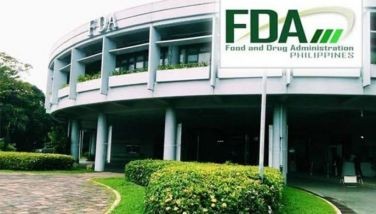Thailand: Benchmark of success in tourism
CEBU, Philippines - The Philippine tourism could go further and be at par with other neighboring countries if it could adapt the best tourism practices of Thailand, thus achieving sustainable growth and global competitiveness in the long run.
This according to Jose Ng, Thailand Honorary Trade Advisor in the Philippines, who shared the success story of Thailand’s tourism during the Tourism Congress last June 21 at the Marco Polo Plaza Cebu.
Ng said that the Philippines has been lagging behind the tourism growth of other nearby countries such as Singapore, Malaysia, Thailand, and Bali, Indonesia in the recent decade.
He added that among those neighbors, Thailand has demonstrated a remarkable feat of developing its tourism after a tragic disaster that threatened the industry.
In 2012, it recorded 22.3 million international tourist arrivals, which is a 16-percent increase from 2011 report. The Asia’s global tourism hub also remains bullish that it will rise up to 24.5 million arrivals that would generate 1.149 billion baht or about P1. 585 billion for this year.
Located at the heart of the Indochina peninsula, Thailand is an ideal terminal for air travel to various regions of Asia. Like the Philippines, it is also rich in ecosystem, culture, history, heritage, beaches, and cosmopolitan society.
Ng highlighted Thailand’s National Tourism Development Plan 2012-2016 that is envisioned “to become a quality tourism destination with tourism competitiveness at the international level to generate more income and distribute wealth on a sustainable basis.â€
It further aims to move Thailand’s tourism up among the top five destinations in Asia to increase tourism income by at least 5% during the five-year period.
The plan primarily focuses on five strategies such as the development of tourism infrastructure and facilities, rehabilitation and sustainable development of tourism sites, development of products, services and factors supporting tourism, building the confidence and promoting the tourism, and promotion of the participation of government, communities and local government units in managing tourism resources.
Similar to the Department of Tourism in the Philippines, Thailand also has its tourism authority that is responsible for the promotion of the country’s tourism. It has 35 regional offices throughout Thailand and has 15 more offices worldwide.
Due to evolving consumer behavior, it adjusted its marketing strategies to concentrate more on high-yield tourists who are likely to stay longer and spend more.
Ng further cited that Thailand is geared towards the balanced philosophy of enhancing qualitative growth while improving the quality of our products and services.
“Thus, Thailand remains the best value destination for tourists in Asia, providing a wide cross-section of budget and a wide range of attractions for different tourist segments. So, a combination of affordability and diversity is the key to success,†Ng stated.
He also said that the country has identified niche markets that are believed to be recession-proof such as golf, health and wellness, weddings and honeymoons, and green tourism.
Ng revealed that Thailand is also eyeing to exploit digital marketing. Its tourism authority is launching the Thailand Super Quality Portal to penetrate the high-end tourism market. The country also has initiated upgrade of its aviation industry to promote airline service quality and maximize existing air transport resources.
He added that Thailand also plans to capitalize on ASEAN Economic Community by 2015 is projected to boost people movement among ASEAN members through trade and services liberalization.
He said that the Philippines, in its own way, has a vast potential for tourism growth. For instance, he said that the country could further sustain its tourism campaign “It’s More Fun in the Philippines†through the lessons from Thailand.
“The Thailand tourism experience exemplifies the diversified and affordable tourism, niche markets, attracting high-value tourists, using ASEAN and foreign trade agreements to promote tourism, multi-sectoral collaboration in planning, implementing and evaluating tourism programs, developing transportation and infrastructure, and political will and commitment of government and non-government partners. Hence, this is an opportunity for us to adapt these best practices relative to Philippine Tourism,†Ng concluded./JOB (FREEMAN)
- Latest

















